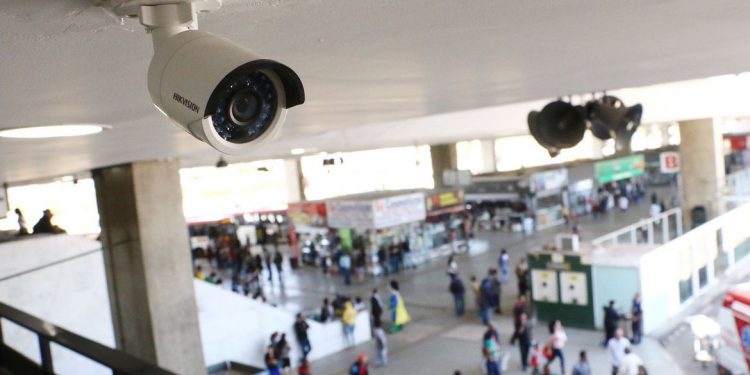Civil Society organizations have filed a complaint with the Public Ministry (MP) of the State of São Paulo against the public notice launched by the Municipal Department of Urban Security of the city of São Paulo for hiring a video surveillance platform in the city of São Paulo.
According to the Brazilian Institute for Consumer Protection (Idec) and the Laboratory of Public Policy and the Internet (Lapin), which signed the complaint, the platform will have an unequal impact on vulnerable populations, especially blacks, because the facial recognition systems result in “serious errors based on algorithmic discrimination.
Smart Sampa is expected to integrate more than 20,000 cameras in the city by 2024 and has an estimated investment of R$70 (US$13.2) million per year.
In the public notice published on Nov. 17, it is expected that the system to be hired will have facial identification and motion detection capabilities.

“The cameras will recognize suspicious attitudes, wanted people, vehicle license plates, and lost objects,” says the text of the public notice.
The expected date for the electronic auction is Dec. 5.
EXPERIENCE
“The cities of Feira de Santana (BA) and Rio de Janeiro, precursors in the use of facial recognition for public safety purposes, are constantly criticized for the massive and erroneous use of these technologies.”
In the case of the Bahian city, during Carnival 2019, only 3.6% of the 903 alerts generated by the facial recognition system resulted in arrest warrants,” highlighted the entities in the representation filed on Nov. 30.
“Already in Rio de Janeiro, in a pilot project, the State Secretariat of Military Police admitted that among the eleven cases of people arrested using facial recognition technology in Maracanã matches, seven were machine errors, that is, false positives. Thus, the system was wrong in 63% of the cases,” they added.
Idec and Lapin also pointed out that, in the four months corresponding to the project’s second phase in Rio de Janeiro, there were no reductions in the main crime indicators, and the installed cameras did not fulfill their function of improving security and are currently deactivated.
ANNOUNCEMENT
In the first version of the public notice, published on Nov. 17, it was expected that the cameras would be able to track suspicious people, monitoring all movements and activities.
“Different profiling types such as color, face, clothing, body shape/physical appearance, and other characteristics should search.”
The equipment should have “on-board analytics” to identify “loitering/permanence.”
On Nov. 30, in a publication in the city’s Official Gazette, the excerpts were rectified and the words “color” and “loitering” were removed.
ORGANIZATIONS
Idec and Lapin are members of the Coalition for Rights on the Net, a network of organizations that brings together more than 50 academic and civil society organizations in defense of digital rights, with the following main themes: access, freedom of expression, protection of personal data and privacy on the Internet.

